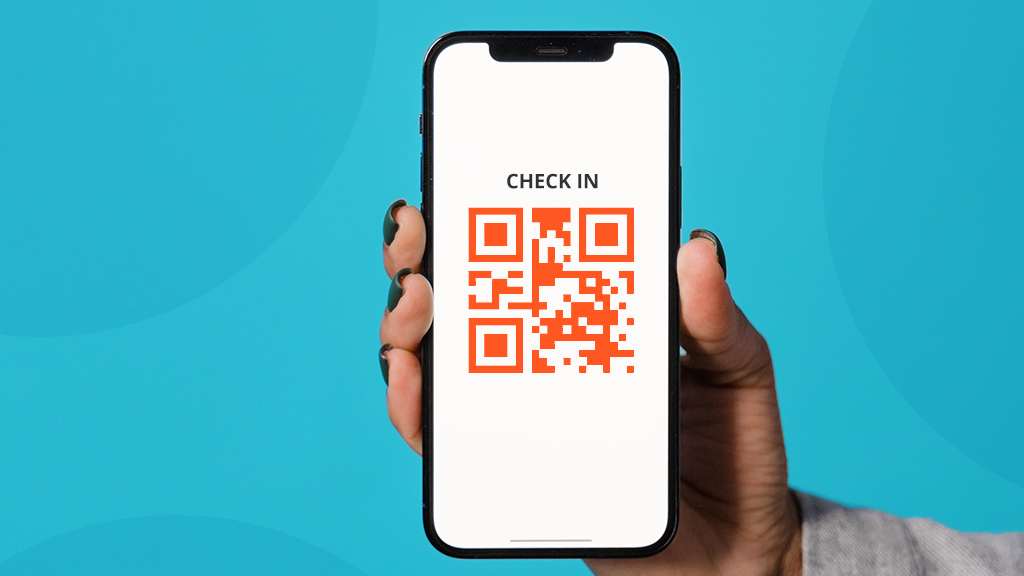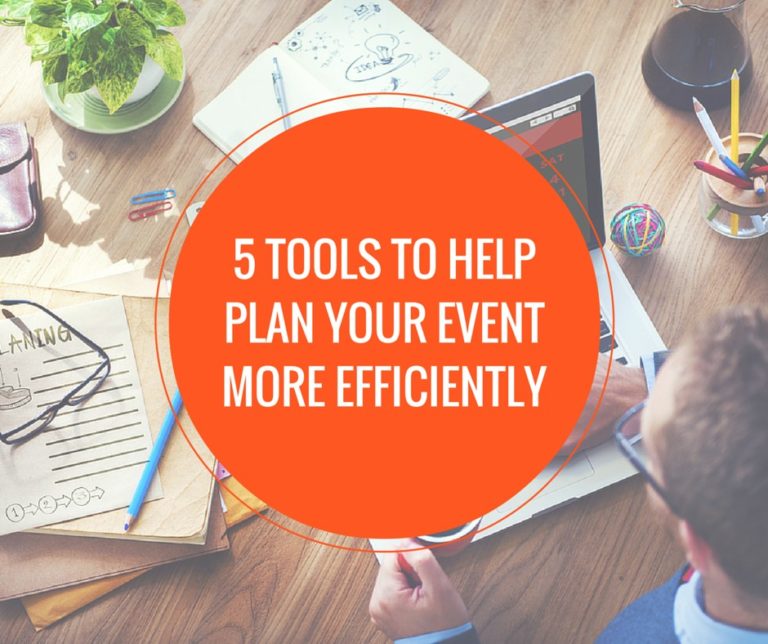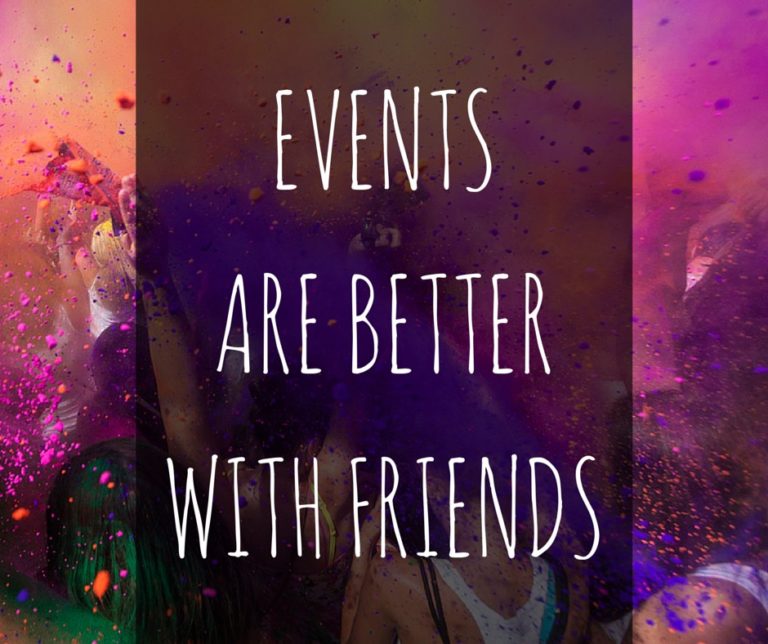The COVID-19 pandemic rocked the world and changed the way many businesses operated. In many cases, live events came to a standstill. Companies put trade shows, conferences, festivals, races, and other live events on hold to keep themselves, event staff, attendees, and everyone else safe. Now, the world is starting to open up again. As people are beginning to feel more confident gathering together, companies are beginning to schedule live events again. The thing is, corporate and other events aren’t quite the same as they used to be. Event safety is a top priority for businesses and event organizers alike. Therefore, event organizers and other industry professionals are seeking new tech tools to host events more safely.
If you’re in the early stages of planning an event (or you’re considering it), you’re probably wondering how to organize it in a post-COVID era. We’ve gathered together some information on some of the latest and coolest event tech that can help you host a safe event for everyone involved.
Health Screening
While people are beginning to return to in-person events, there’s still a bit of apprehension. They might know that they’re healthy, but what about everyone else in attendance? Numerous innovative solutions are popping up to address these safety concerns. Here are four powerful tech tools that can help perform health screenings at your event:
COVID Rapid Tests
COVID-19 Rapid test kits make it easy to screen event attendees before they gather in larger groups. With a quick fingerprick, these tests can detect early and late antibody markers. All it takes is 15 minutes. Organizations like RTW Health Services provide high-quality, comprehensive COVID-19 testing and compliance services that include rapid point-of-care polymerase chain reaction (PCR), Antigen, and Molecular tests. RTW also offers EUA/FDA-approved lab-based PCR, Nasal Swab, and SalivaDirect PCR tests that yield results within 12 to 36 hours. (RTW’s client list includes well-established film and television production companies such as Warner Bros., Netflix, and the Food Network, as well as schools such as Roseland Public Schools and Gravenstein Union School District.)
SymptomSense
You may have been to places recently where someone takes your temperature before they allow you inside. SymptomSense is a new event technology that goes a little further. In addition to scanning the body temperatures of your attendees, the kiosk also checks other vitals, including the heart rates and blood oxygen levels of event-goers. As such, it’s able to detect several symptoms that could point to COVID and other illnesses. And it does so anonymously.
What’s more, attendees can get their results with a QR code, so they don’t have to worry about unnecessary physical contact. RTW conducts daily symptom screening and monitoring and temperature checks upon request, in addition to providing professional recommendations for contact tracing.
Safe Events
Safe Events by ReturnSafe offers an all-in-one approach to event health screenings. With tools to pre-screen attendees, keep track of testing and vaccination data, and perform contact tracing, you can help to ensure the safety of everyone involved in your event.
Health Status Apps
Many event organizers require some proof that their attendees are healthy before they enter. Well, now there’s an app for that. QuikPass™ compiles COVID test results and attendee vaccination records (with consent, of course) and uses that information to validate the status of their guests without giving away other private health information.
Touchless Tech
To avoid catching or spreading germs and illnesses, many people are trying to limit how much they have to touch things. Companies are responding to the desire to minimize contact with some pretty incredible touch-less event tech tools.
Facial Recognition
Many people these days have phones with facial recognition software. It’s how some of the newest phones unlock. If you’re unfamiliar with it, it’s software that tracks, logs, and stores your facial features.
For in-person events, facial recognition can be invaluable for event entry by allowing your guests to check in without ever having to touch anything. Guests can scan their faces during the registration process. The event technology recognizes them when they arrive, checking them in quickly and seamlessly. ‌
RFID Chips
Another option for touchless event tech is integrating RFID chips into a wristband or event badge. You can program these scannable chips to contain attendees’ tickets, so there’s no exchange of physical paper.
Depending on your specific event, attendees can also enter their payment information online, which you can then also program into the chip. The wristband or badge containing the chip then acts as both a ticket and a form of payment. Checking in and making purchases becomes faster, easier, and far safer. ‌
QR Codes
QR codes can perform similar tasks to RFID chips, and you can easily send them with confirmation emails. Attendees can scan these codes upon arrival rather than handing over printed tickets.
‌These scannable codes offer other assistance, too. For instance, if you’re hosting a trade show, vendors can display a QR code at their table. Guests can scan the code with their camera to reach the vendor’s website or learn more about what they have to offer. Alternatively, food vendors can display QR codes so that your guests can access a digital, touch-less menu.
Artificial Intelligence
Experts expect the artificial intelligence (AI) market to grow to over $300 billion by 2026 from a mere $58 billion in 2021. People with home assistants like Alexa and Google are likely familiar with this type of technology. It can also add some value to live and hybrid events.
Create Personalized Recommendations
AI integrated into live events can create personalized recommendations for each attendee. It can associate individuals with their particular fields or interests. In turn, this helps to ensure that the most helpful content reaches them right when they need it. Attendees can get recommendations for specific seminars that will best fit their needs, keeping the total number of people in a specific area down.
Chatbots
Chatbots are not new. People often use them online to get answers to specific questions or to get help from a business. Many also use digital home assistants for quick searches. The same tech can help automate customer service at events. It can provide fast answers and vital information while event organizers focus on planning and other essential tasks. At the same time, it can help to limit the number of people that gather around a customer service desk, making the space safer for attendees and event staff.
Voice Translation
For virtual, hybrid, and live events with speakers, organizers can use artificial intelligence for real-time voice translation. As someone speaks, the tech translates what they’re saying into multiple languages, which can eliminate the need for hiring several translators. In that sense, it’s beneficial for event goers and organizers alike. Attendees can follow the presentation no matter what language they speak, and event organizers save time and money finding translators in every language they need. It also means fewer people overall, which increases safety at live events.
Sanitization and Air Purification
Venues are supposed to develop and implement cleaning and sanitization guidelines themselves. As an event organizer, you may decide to create your own, too. With cleaning and sanitizing strategies in place, you can help to ensure the health and safety of everyone in attendance.
Sanitization
There’s a ton of great sanitization event tech tools out there. For instance, InCharged offers electrostatic sprayers and UV-C lights along with motion-activated hand sanitizer dispensers. Stretch Structures added disinfection and sanitation tunnels to its product lineup. Additionally, Highmark TechSystems now has a “Handwashing and Disinfection Modulbox.” It requires less than an hour to install and can help to promote social distancing while maintaining traffic flow. It’s also well-ventilated and has electricity and lighting.
Air Purification
Air purification is also high on the priority list for many event organizers. Safety management firm KOACORE offers two distinct air purifiers (from Puraclenz and ActivePure(R) from Vollara) whose efficacy has been proven to be above average. With these purifiers, the average cost to cover one square foot of space is also lower compared to other similar products ($0.25 to $0.50 per square foot covered, at MSRP); this can lead to substantial savings in large indoor event spaces).
Additionally, KOACORE offers a wide variety of face masks that are highly effective at combatting COVID-19, including N95 NIOSH masks (one of which is foldable) that provide at least 95% filtration efficiency and that have a flexible nose clip. KOACORE also provides customizable anti-microbial fabric (cotton/polyester blend) masks and FDA-approved face shields that are anti-fog and one-size-fits-all. KOACORE has delivered safety products to organizations such as the Illinois State Board of Education and provided comprehensive safety management programs (including consulting, testing, and vaccine verification) to companies such as Netflix, Amazon Studios, and Live Nation.
Proximity Alerts
While people are starting to gather in larger groups again, social distancing is still needed in many situations. The last thing you want is for your attendees to cram together in small spaces for long periods of time. Being too close to others can make some individuals anxious. It can also increase the risk of spreading germs to each other.
Beacon technology can help you enforce social distancing in your in-person events. For instance, TraceSafe Technologies is working on a wristband that can alert someone if they’re standing too close to another person also wearing a band. It can also alert attendees via text message if they were too close to someone who later reported that they became sick.
Live Streaming
Live Streaming isn’t new, but it has been gaining popularity. It was already gaining steam before the pandemic, but COVID made it an integral part of hosting events when everything went virtual. With it, you can broadcast your event in real-time over the internet, even as events return to in-person affairs. That way, people who want to attend an event but don’t feel safe doing so (or who can’t go) can still take part.
Even as things return to normal, live streaming events can still be beneficial. In addition to allowing people who want to attend but can’t, it also allows organizers to reach a broader audience and raise more awareness.
COVID Safety at Events: Prioritize Safety for Everyone with Incredible Event Technology
‌Live events took a serious hit in the wake of the COVID-19 pandemic. Even now, as things are starting to return to normal, hosting fundraisers, concerts, and other social events still isn’t quite the same.
Fortunately, companies have come to the rescue with some amazing event tech. With technology like artificial intelligence, screening tech, sanitization, and more, you can help to reduce the risk of spreading illnesses during in-person events.
Are you looking for event tech to host your next safe event? Check out the Events.com marketplace today to learn more about what tech tools we have to offer that can make your next event a success.




